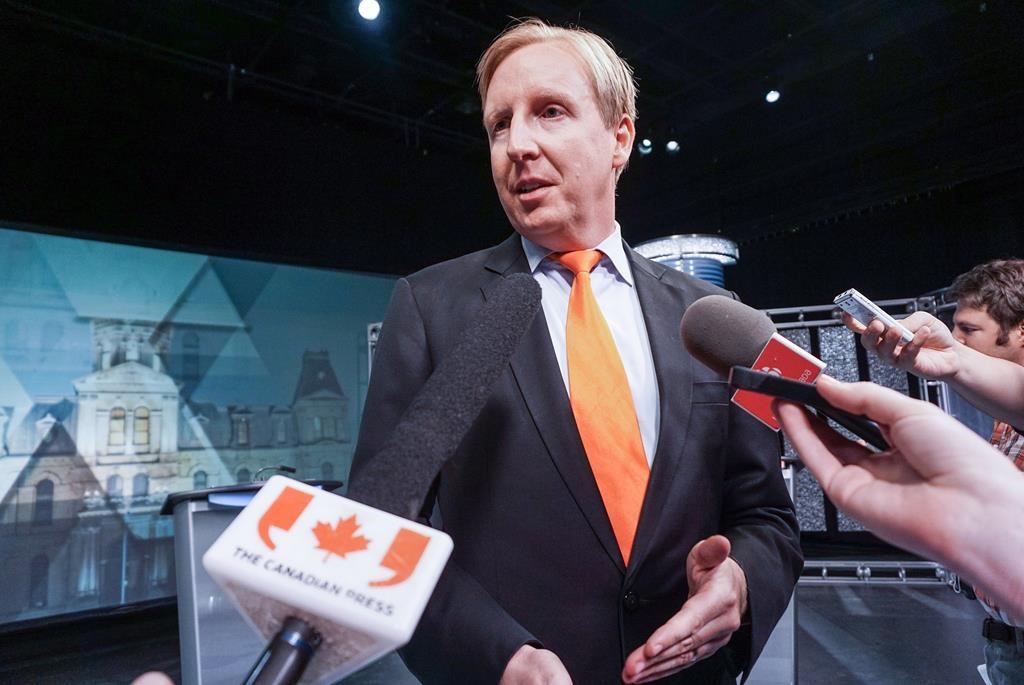New Brunswick is aiming to improve the quality of its second-language training, announcing on Thursday that students and educators will be consulted on how best to do so.

“New Brunswick is Canada’s only bilingual province, and all New Brunswickers should be able to share their stories and experiences with one another,” said Education and Early Childhood Development Minister Dominic Cardy.
READ MORE: New Brunswick languages commissioner report sparks threats to topple PC minority government
According to a 2018 report released by the office of the official languages commissioner, the percentage of New Brunswickers whose mother tongue is French reached a low of 31.9 per cent in 2016, compared to 33.8 per cent in 1971, while the percentage of people whose mother tongue is English has remained stable at approximately 65 per cent of the population since 1971.
The report also states that the unequal dynamic between the minority and the majority languages favours the anglicization of some Francophones. For example, 6.6 per cent of Francophones no longer spoke their mother tongue regularly at home in 2016, compared to only 0.7 per cent of Anglophones, the report found. The anglicization of Francophones, which was 5.8 per cent in 2006, has therefore increased over the last 10 years.
READ MORE: N.B. working group to look at economic benefits of bilingualism
“Our low levels of bilingualism are unacceptable. We need to look at opportunities to use personalized or experiential learning to address the needs of second-language learners and make second language programs more accessible.”
As outlined in “Succeeding at Home: A green paper on education in New Brunswick,” a document that offers the public and stakeholders a range of ideas and policies to consider, the provincial government has committed to ensuring that all students achieve, at minimum, conversational proficiency in both official languages by the time they graduate from high school.
The New Brunswick government has said department staff will visit schools and talk with students and educators currently participating in second-language programming.
“Discussions will explore the strengths and weaknesses of the current curricula and programming to see where there is room for improvement and what successes can be leveraged to create new, widely available learning opportunities,” the province said in a media release.

Based on the discussions and feedback received, the government said it will invite about a dozen schools to participate in a pilot project to explore second-language learning opportunities and different models of delivery. These projects will begin as early as the 2020-21 school year.
The government is also exploring structures that would enable students to work together as they learn the two official languages and looking at how technology can be used to reinforce lessons and connect students across the province.
The Department of Education and Early Childhood Development has also committed to working with early childhood educators to explore play-based approaches to language acquisition.
“Educators working in classrooms directly with students every day are in the best position to explain their needs, successes and challenges,” said Cardy. “To build a world-class education system, we need to learn what long-standing barriers to learning exist and explore different models to overcome these barriers.”




Comments